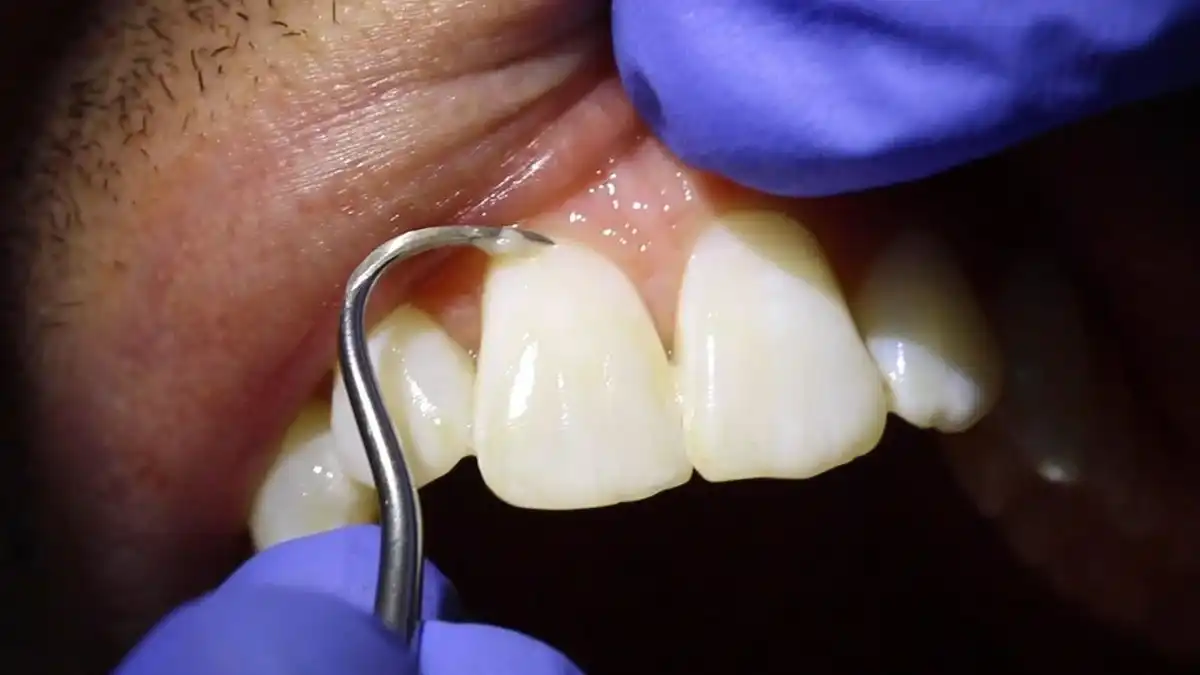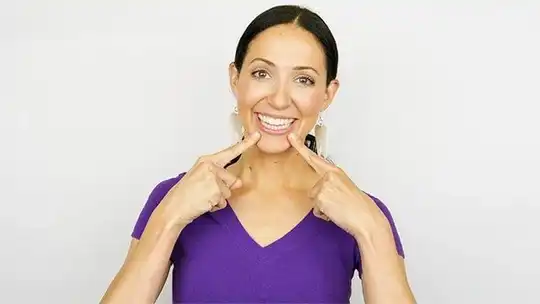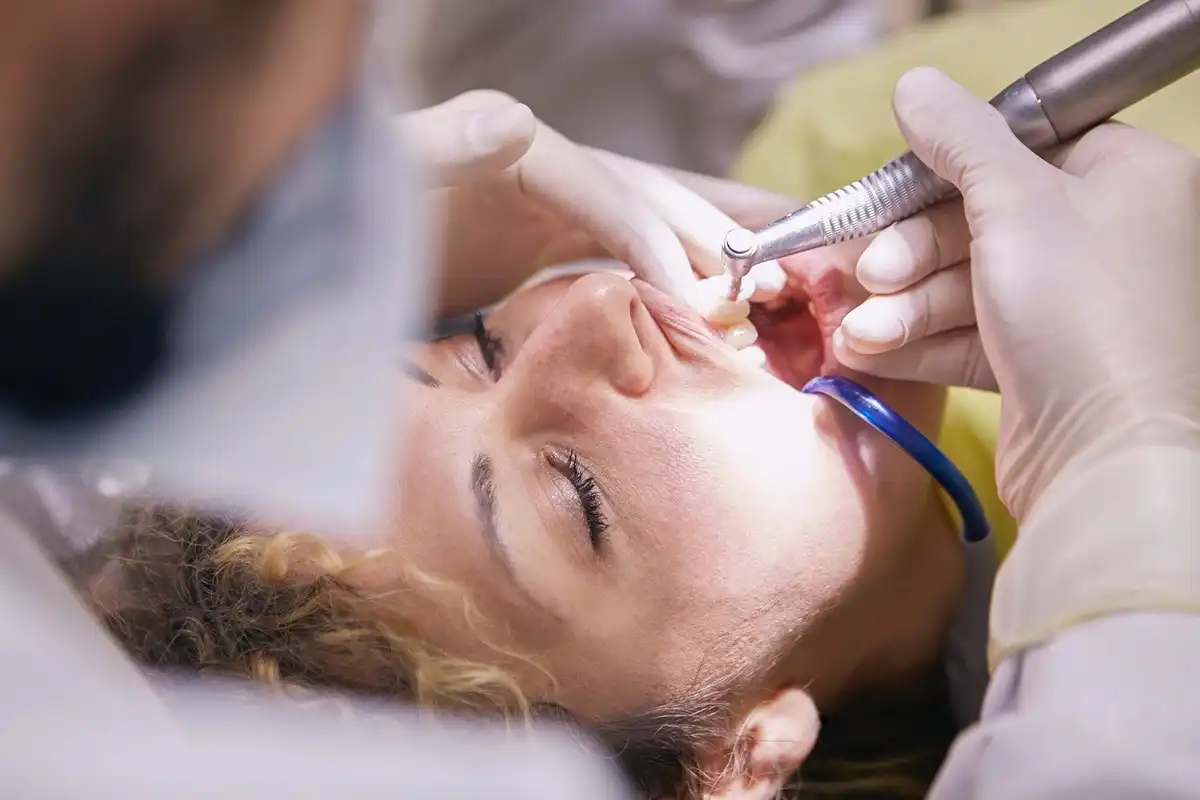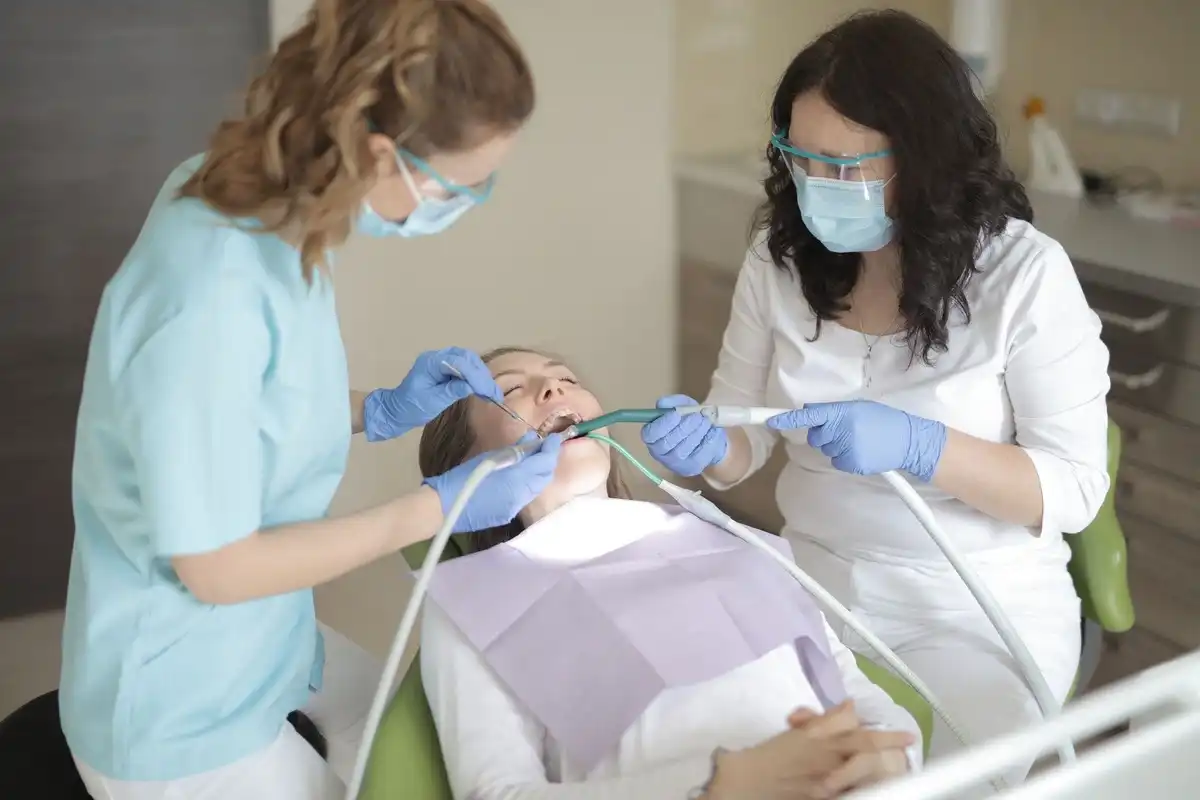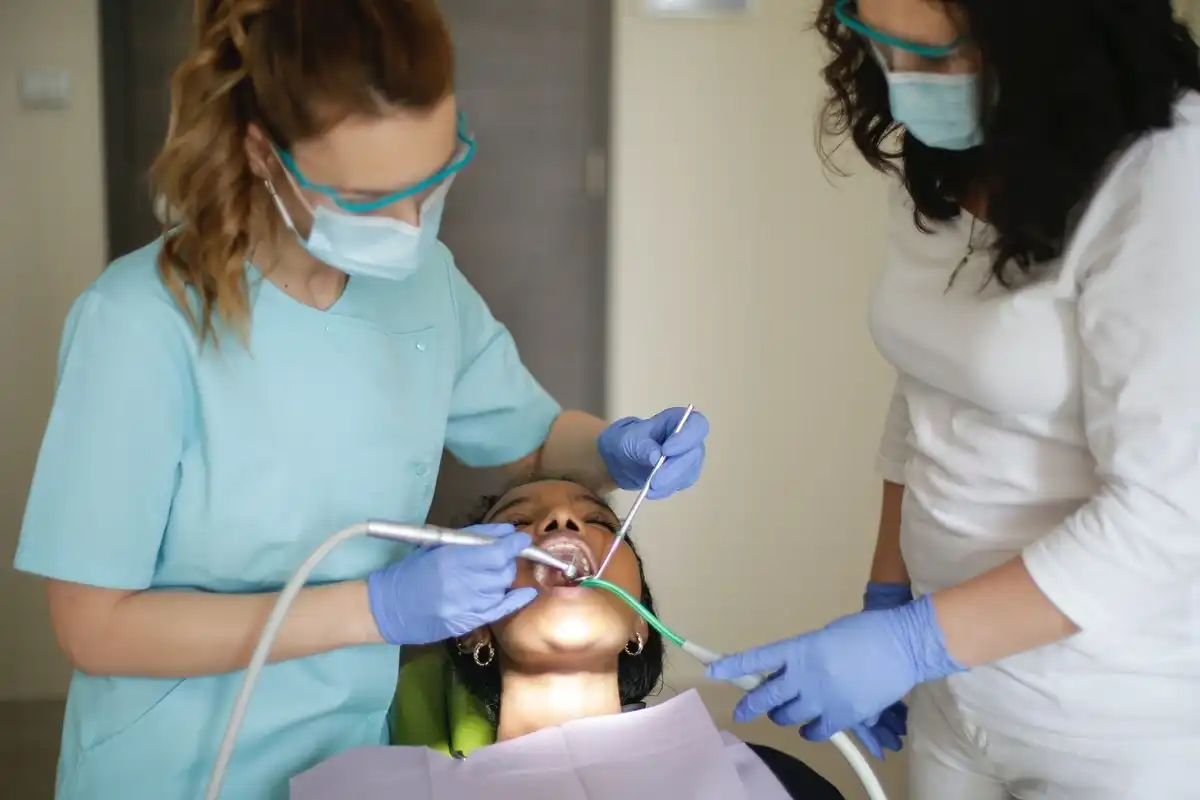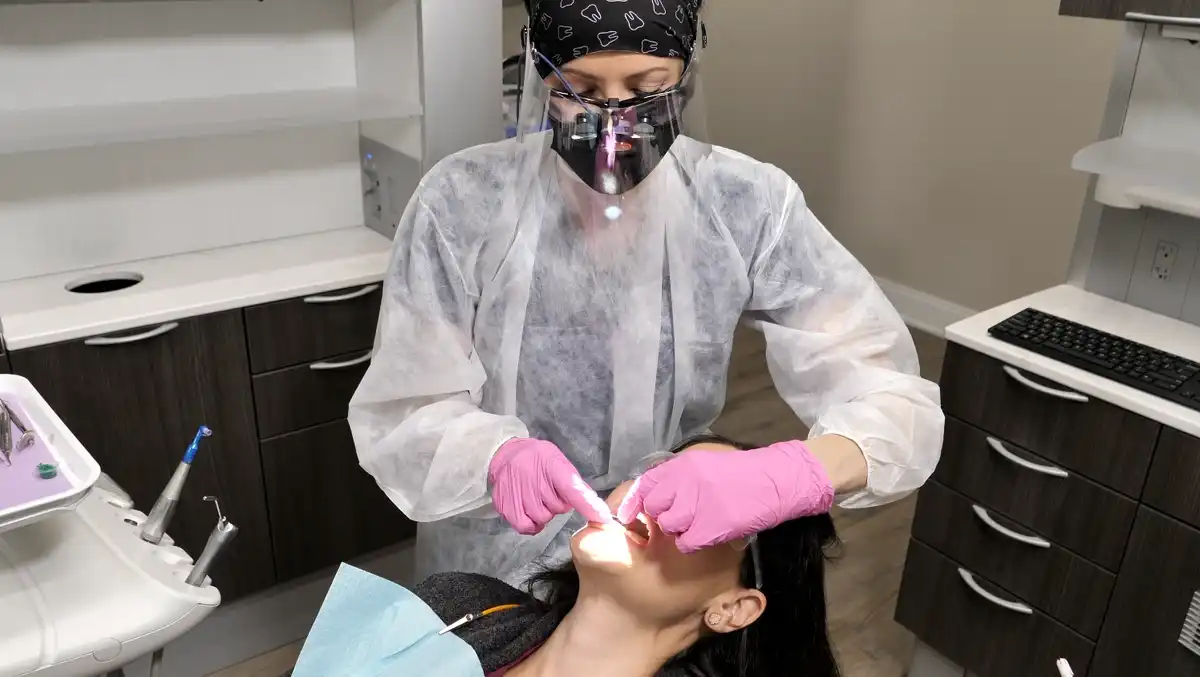Dental Hygiene Associates Degree Vs Bachelors Degree

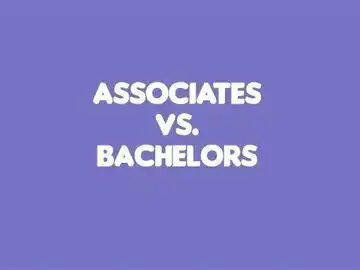
One of the most common questions people ask about becoming a dental hygienist, is do hygienists with bachelor’s degrees get paid more than hygienists who have an associate degree? Is one better than the other or does it matter when it comes time to look for a job after hygiene school?
In short, no. You don’t make more money having a dental hygiene bachelor’s degree vs. associate's degree when you’re working in a normal hygiene op in a private dental practice. HOWEVER…there are still advantages to having a 4-year degree that you might want, depending on your career goals.
Associate’s Degree vs. Bachelor’s Degree in Dental Hygiene
In years past, it was way more common to get your dental hygiene associate's degree vs. a bachelor’s degree. But, like nursing, a lot of hygiene programs have started to shift toward complete 4-year bachelor’s degrees for their graduates. That being said, there are still plenty of community and junior colleges out there that provide comprehensive 2-year dental hygiene associates degrees.
What’s the difference between the two? Not as much as you might suspect. All dental hygiene students still have to take the same scientific prerequisite classes to be admitted. Such as microbiology, anatomy & physiology, chemistry, etc. Even if you’re “only” getting your associates in dental hygiene, you’ll probably still have at least three full years of college under your belt. But for a 4-year degree, some of your dental hygiene classes might be merged with dental students in dental school.
Maybe you want to work in clinical dentistry and not do anything else. That’s perfectly fine! A dental hygiene associate's degree vs. bachelor’s degree isn’t going to make a difference. But having a bachelor’s degree in hygiene (or anything else for that matter) could open more doors that an associate degree cannot.
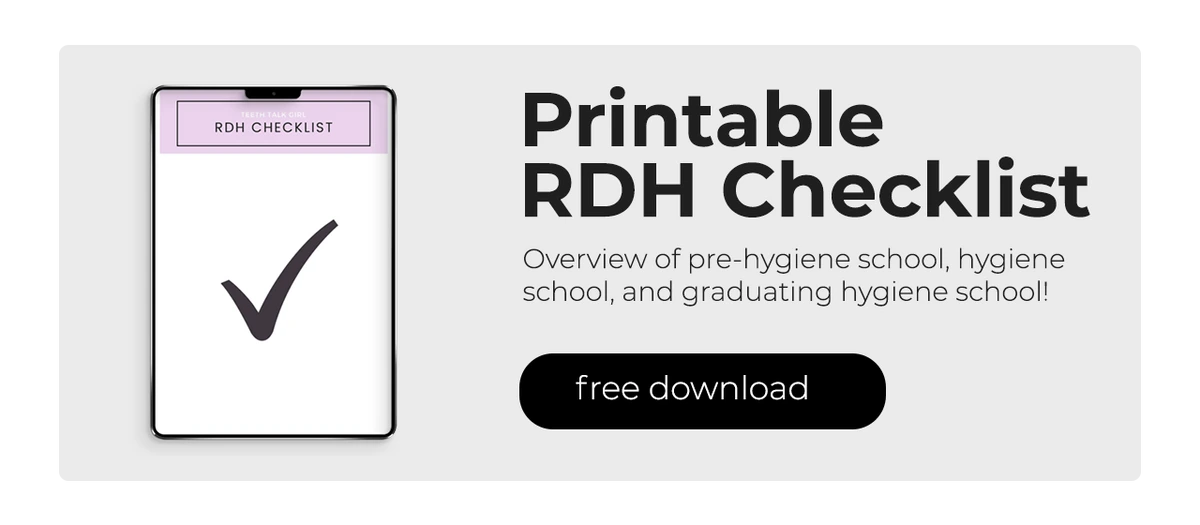
Associate Degree in Dental Hygiene
An associate degree in hygiene means you’ve completed a 2-year program in addition to other basic prerequisite coursework. You might not have quite as many “core” classes like government or a foreign language as you would with a 4-year degree, but you still take all of the same health science prerequisites. Usually, you need all or most of your science courses complete (or in progress) with high grades even to apply to hygiene school.
Then, you complete two solid years of taking lecture and clinical classes, specifically related to dental hygiene. Graduates typically earn an Associate of Science or Associate of Applied Science degree.
Even though you’re “just” getting a 2-year degree, graduates of dental hygiene associates programs usually have at least 3 years of college credits because of all of the prerequisites required. That’s not always the case, but it’s extremely rare (if not unheard of) to go straight into a competitive dental hygiene program without any of your prerequisites already out of the way.
Bachelor’s Degree in Dental Hygiene
If you’re looking to get your bachelor’s degree in dental hygiene, you’re probably spending the first year or two in college taking all of your “core” requirements in addition to your hygiene school prerequisites. Normally that means additional science coursework than what’s required for the university core curriculum. Almost as if you’re majoring in biology, chemistry, or pre-dental. After you complete most of your prerequisites, you can apply to the dental hygiene program. When you’re admitted, you take the same hygiene classes that are offered at the junior college level, except they are junior and senior-level courses at the university. Upon completion of your second year in hygiene school, you earn a full, 4-year bachelor’s degree.
What About a Bachelor’s Degree in Something Else?
Some dental hygienists have associate degrees in dental hygiene but go on to complete a 4-year bachelor’s degree in something else. Like marketing, psychology, biology, or whatever else interests them. Having a 4-year degree on top of their dental hygiene license can potentially open up more doors for their future career, even if it’s not a hygiene degree, per se. Maybe you decide that you really want to teach health science classes in high school so you go back to get your teacher certification, which requires a 4-year degree even if it’s not in something specifically health-related (but you have your state license to prove you’re a healthcare provider.)
Any bachelor’s degree also gives you a head start on pursuing a master’s degree or even a PhD if you want one. Hygienists who go into the public health or research sectors typically have higher degrees, but they also make up a smaller percentage of hygiene professionals. You do you. There is no right or wrong way to expand your career and you may not ever need to. Just like plenty of people succeed without any college degree at all, choosing your level of dental hygiene degree doesn’t hold you back from finding a rewarding job.
Does Someone With a Bachelors In Hygiene Get Paid More?
If you’re planning on working in a traditional dentist’s office and seeing patients every day, then it is practically unheard of for a hygienist to make more money if they have a bachelor’s degree vs. associate's degree. Pay is more dependent on your location rather than your degree.
However, having a bachelor’s in dental hygiene or something else could lead you to other careers that make more than traditional chairside hygiene. For example, maybe you want to go into sales with a big dental supply corporation, but they require dental experience and a four year degree. You don’t need a degree in dental hygiene, but you’ll need more than an associate’s.
Or perhaps you want to teach at a dental hygiene program after you retire from clinical dentistry. Most hygiene schools require at least 18 hours toward your master's, if not a full master’s, to teach. Having a bachelor’s degree will already give you a giant head start toward this big career change.
Which is Better?
Having a dental hygiene associate's degree vs. bachelor’s degree isn’t better one way or the other. It all depends on how much career flexibility you want to have, how happy you are working in traditional clinical patient care, and what you want to do in the future. Right now, if all you have is a 2-year degree, that’s perfectly fine! You can make just as much money working hygiene as a hygienist with a 4-year degree. But if you want to go into academia, research, or public health, you’ve got time to take classes part-time and add to the degree you already have, so that you can open up more doors in the future.
Deciding between an associate's and bachelor’s degree may be easier than you think. You see, it can be pretty competitive to get into dental hygiene school. You might want to spend a year or two working on all of your “core” classes and prerequisites, then apply to as many hygiene programs as possible, just to see which one(s) you’re admitted to.
When Is The Right Move To Get A Bachelor’s?
If you’re thinking that you may want to do something more than clinical hygiene in the future, it’s worth it to go ahead and either try to get into a 4-year dental hygiene program or pick away at completing your bachelor’s degree after you’ve already earned an associate’s. There’s no right or wrong answer. Some hygienists continue to take classes immediately after they graduate, while others may stay in hygiene 10-15 years (or longer) before going back to college. If you know for a fact that you don’t want to stay in private dental practice for your entire life, then it’s a great idea to go ahead and make plans to work on your bachelor’s degree. But if dental hygiene is your second career or you love it so much that you don’t see yourself doing anything else, there’s really no need to take extra classes. Just apply to different schools, know your options, and go with your gut.

Dental Hygiene Associates Degree Vs Bachelors Degree Recap
Is a dental hygiene associates degree vs. bachelor’s degree better one way or the other? No, but a bachelor's can give you more future career options and flexibility. Does one pay more than the other? Again, no. All dental hygienists usually get paid the exact same, regardless of their degree level. That being said, having a bachelor’s degree could open up opportunities where you earn more than traditional clinical hygienists, depending on what your career goals are. In everyday dentistry, you can apply for a dental hygiene job at any private practice with either degree. You both hold the same exact license and pass the same exact dental board exams. The main difference is that one has about one extra year of college classes.

Make your inbox smile!
Subscribe
